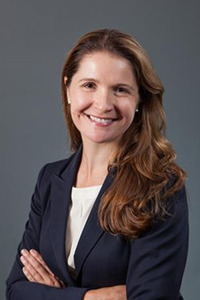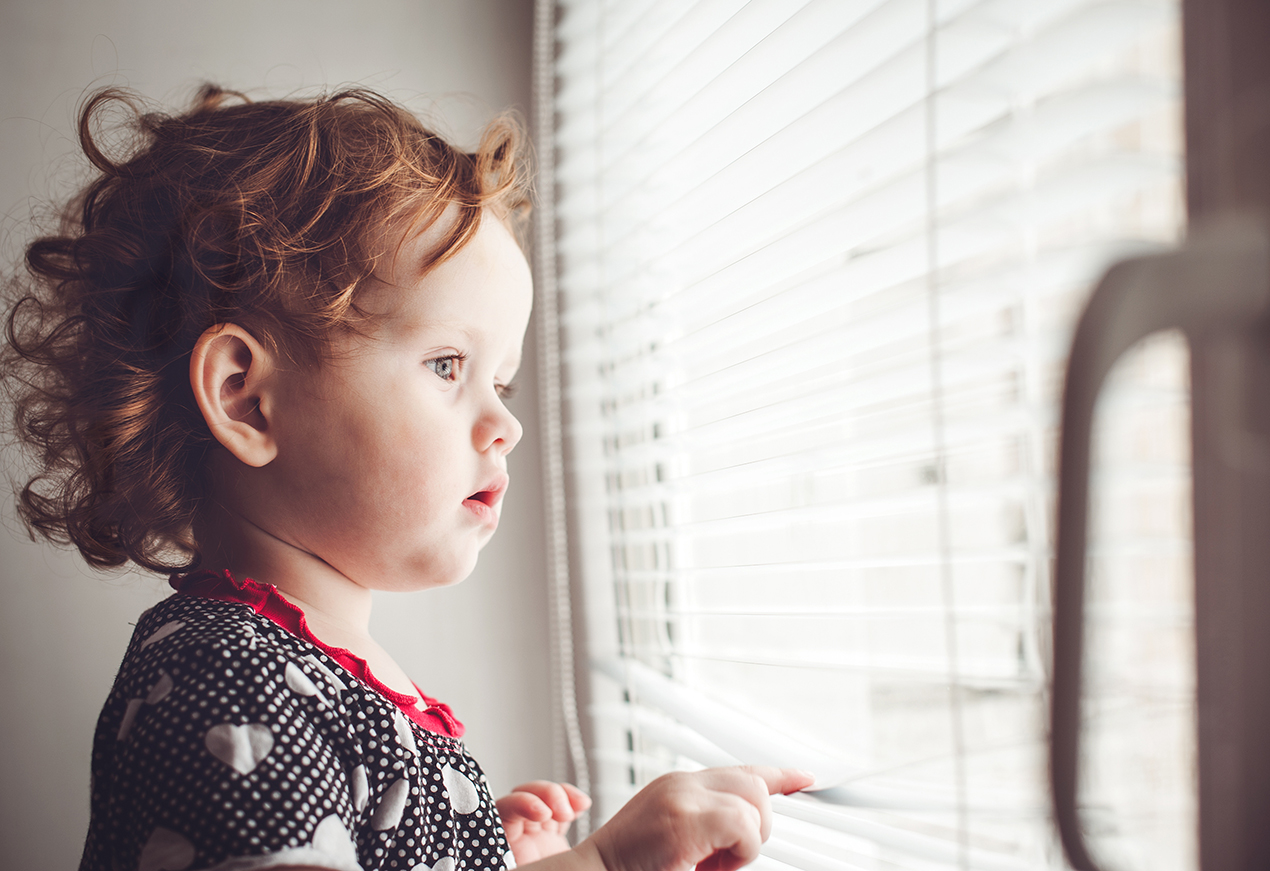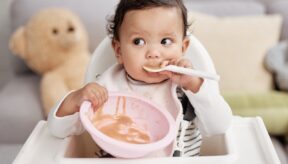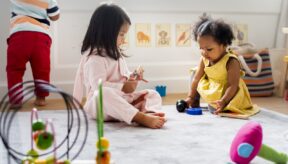Parents are told the first three years are the most important in their child’s development. Throw a pandemic, months of social distancing and an Internet full of misinformation into the mix, it’s no surprise parents are feeling anxious.

To set the record straight, we asked Doctor Rahil D. Briggs, Clinical Professor of Pediatrics, Psychiatry and Behavioral Sciences at the Albert Einstein College of Medicine, some questions parents have been asking about whether COVID-19 will have any lasting impact on their child’s development.
Will social distancing and being removed from extended family and friends impact a newborn’s brain development?
It doesn’t have to! As long as babies have at least one primary caregiver who can remain attentive, engaged, and can ensure a safe, stable, and nurturing environment, brain development can and will proceed apace.
For parents whose little ones were thriving in daycare before forced closures: Will social distancing have an effect on their social skills?
Again, while children may definitely miss their caregivers and friends, their social skills can continue to develop in a healthy way as long as parents can stay engaged, keep the stress manageable, and provide opportunities for age appropriate interactive moments.
What can parents do with their little ones at home to encourage learning, growth and socialization?
The good news here? It’s everything you were doing before, just now there are so many more opportunities. Reading books, singing songs, talking with baby.
We often use the sportscaster metaphor to describe how parents can essentially narrate their daily activities to baby, for example “Now I’m making rice. Here’s the pot and here is a cup of water and a half cup of rice…”
Why is my little one acting weird?
It’s normal for young children to get upset when there are changes to the routine. However, most young children don’t use words to share these feelings. They “tell” you through their behaviour. They may get fussy or aggressive. Some go back to earlier behaviours like wanting a pacifier or waking up throughout the night.
It’s easy to get frustrated since you’re already so stressed. Instead, pause and think about what your child’s behaviour could be telling you. What might they need? They may sense your worries and just need extra hugs. They might need a good cry just like you do.
Can increased anxiety/stress in parents related to the pandemic have a negative impact on young children?
The bad news here? Yes, just as it could before. It’s just that we all have a lot more anxiety and stress these days. There is toxic stress, which is chronic and unmitigated, and then there is tolerable and even positive stress.
Children can grow and learn from positive stress (and tolerable stress as long as it’s not too frequent), but toxic stress can be derailing for child behaviour and brain development, especially for infants and toddlers whose brains are extra receptive. That’s why we must ensure that parents are offered help, respite, and support to navigate these extra special years.
Any words of advice for parents who are worried their babies/toddlers won’t develop “normally”?
You’re all your baby needs. You have umpteen facial expressions, ways to smile and show interest, and your vocabulary is leaps and bounds ahead. As long as you can manage your own stress and anxiety—and be sure to ask for help if you need it—connect with your baby as often as feels comfortable for each of you.
Dr. Briggs shared these resources on How to Care for Yourself and Young Children During the COVID-19 Crisis and helpful Tips for Families.
*Opinions expressed are those of the author, and not necessarily those of Parent Life Network or their partners.



 Sponsored
Sponsored




